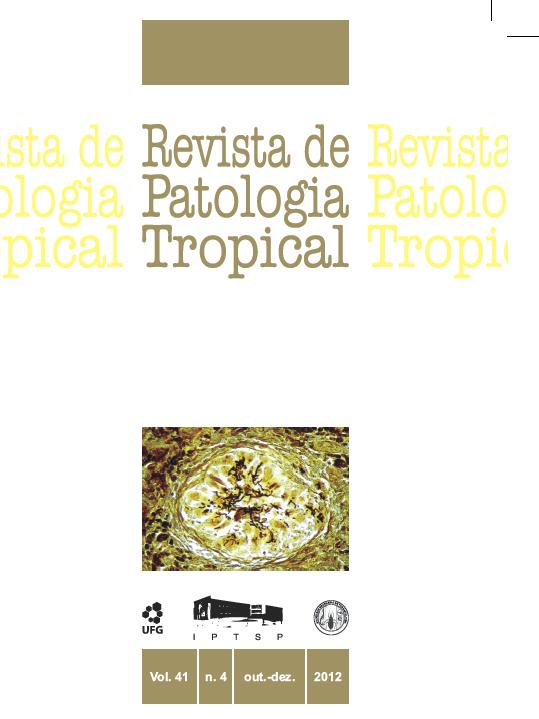Epidemiological aspects of malaria in the State of Tocantins, Brazil and the origin of cases from 2003 to 2008
DOI:
https://doi.org/10.5216/rpt.v41i4.21710Keywords:
Dynamics of Malaria, Epidemiology, Plasmodium, Parasitic Disease.Abstract
The risk for malaria infection is not uniform in all regions of the country. Therefore, this study aimed to examine the dynamics of malaria in the State of Tocantins, in the period from 2003 to 2008, to identify the risk of disease and contribute to health services in the planning of control actions. A descriptive and quantitative analysis of cases stored in the SIVEP-malaria program was performed with the aid of Epi Info, BioeStat and DEMO softwares. We analyzed 3,610 reports of malaria. Autochthonous cases accounted for an annual average of 27.2% and imported cases 72.9%, showingreduction in both classifications. Cases in males represented 79.8% of the cases, with a higher prevalence in the age group of 20-39 years. Plasmodium species showed a significant difference (H = 12.87, p = 0.016) and continued decrease in the three forms of infection (Plasmodium vivax, Plasmodium falciparum, and mixed malaria). As a result of the malaria infection reduction, there was an increase of the number of cities with no record of cases. Eleven cities, located on the west side of the state, are discussed in detail because they concentrated 70% of the cases and because of
their standard deviation API values. The results revealed the areas of greatest incidence of malaria, the influence of the Amazonian states in the distribution of the cases in Tocantins and evidenced the importance of maintaining enhanced surveillance in all cities, to early identify isolated cases as they arise to avoid localized outbreaks and with this, contributing to transform the State to a free area of
malaria transmission.
Downloads
Downloads
How to Cite
Issue
Section
License
The manuscript submission must be accompanied by a letter signed by all authors stating the full name and email address, confirming that the material has not been published or is under consideration for publication elsewhere, and agreeing to transfer copyright in all media and formats for Journal of Tropical Pathology. The authors will not be paid for published articles. They are solely responsible for the content of those articles, even if the Editor holds the right to adjust them to the norms of the journal.
The reviewers will not be paid for the peer review process.

